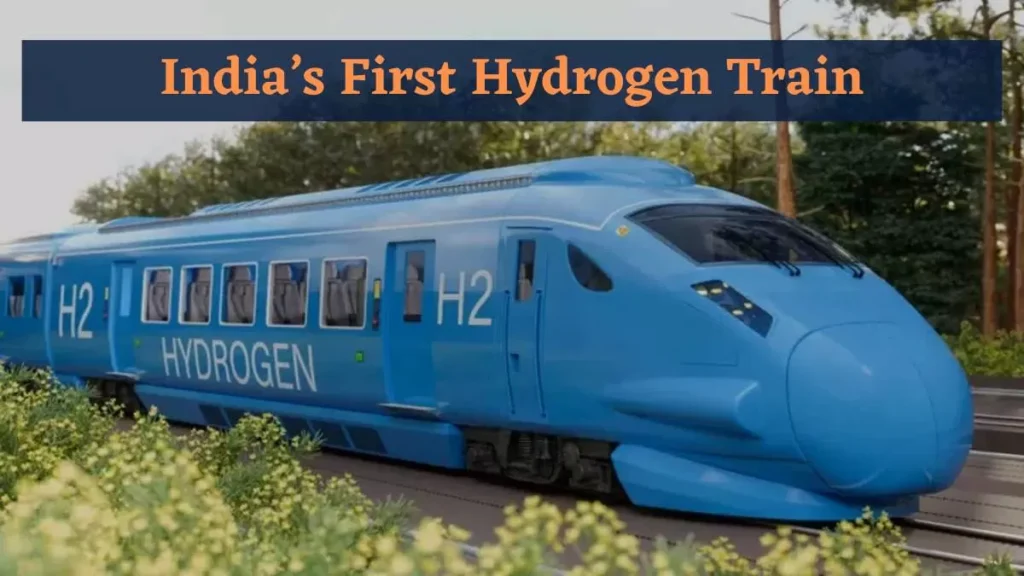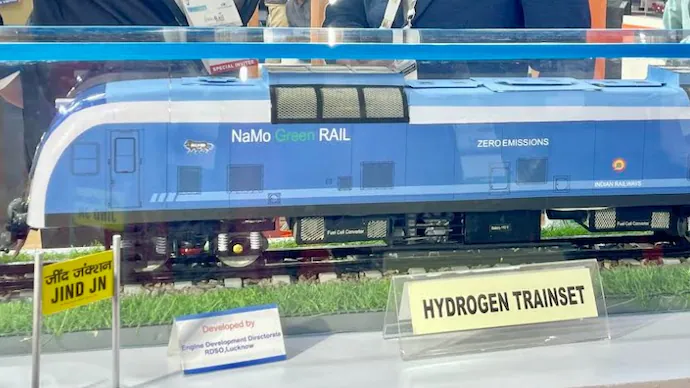India is set to revolutionize its railway sector with the introduction of its first hydrogen train, marking a significant stride towards sustainable and eco-friendly transportation. This groundbreaking initiative aligns with the nation’s commitment to reducing carbon emissions and embracing cleaner energy sources.

Hydrogen Train Trial Runs on the Jind-Sonipat Route
The inaugural hydrogen train is scheduled to commence trial runs on the 89-kilometer Jind-Sonipat route in Haryana. This selection underscores the region’s strategic importance in pioneering green transportation solutions. The trial phase aims to assess the train’s performance, safety, and efficiency before its full-scale deployment.
Impressive Features and Capacity
Designed by the Research Designs and Standards Organization (RDSO) and manufactured at Chennai’s Integral Coach Factory (ICF), the hydrogen train boasts several notable features:
- Engine Power: Equipped with a 1,200-horsepower engine, it stands as the world’s most powerful hydrogen-powered train.
- Passenger Capacity: The train comprises eight coaches, accommodating up to 2,638 passengers per journey, addressing the need for high-capacity public transport.
- Speed: Capable of reaching speeds up to 110 km/h, it ensures timely and efficient travel for commuters.

Environmental and Economic Advantages
Hydrogen-powered trains utilize fuel cells that combine hydrogen and oxygen to produce electricity, emitting only water vapor as a byproduct. This technology offers multiple benefits:
- Zero Emissions: Significantly reduces greenhouse gas emissions, contributing to cleaner air and a healthier environment.
- Energy Efficiency: Provides a more efficient alternative to traditional diesel engines, potentially lowering operational costs over time.
- Noise Reduction: Operates more quietly, enhancing passenger comfort and reducing noise pollution in surrounding areas.
Infrastructure Development in Jind
To support the operation of the hydrogen train, India’s largest hydrogen refueling station is being established near Jind Railway Station. This facility will ensure a steady supply of hydrogen, facilitating seamless train operations and setting a precedent for future hydrogen-based transportation infrastructure.
Future Prospects
The successful implementation of the hydrogen train on the Jind-Sonipat route serves as a pilot project, with plans to expand this technology across various regions. Indian Railways has allocated ₹2,800 crore for the development of 35 hydrogen fuel cell-based trains, aiming for widespread adoption by 2047. This initiative is part of the broader ‘Hydrogen for Railways’ project, targeting net-zero carbon emissions by 2030.
Conclusion
The introduction of India’s first hydrogen-powered train on the Jind-Sonipat route represents a monumental leap towards sustainable transportation. By harnessing green energy, this initiative not only addresses environmental concerns but also paves the way for innovative advancements in the nation’s railway infrastructure. As India joins the ranks of countries pioneering hydrogen rail technology, it sets a commendable example in the global pursuit of cleaner and more efficient transportation solutions.